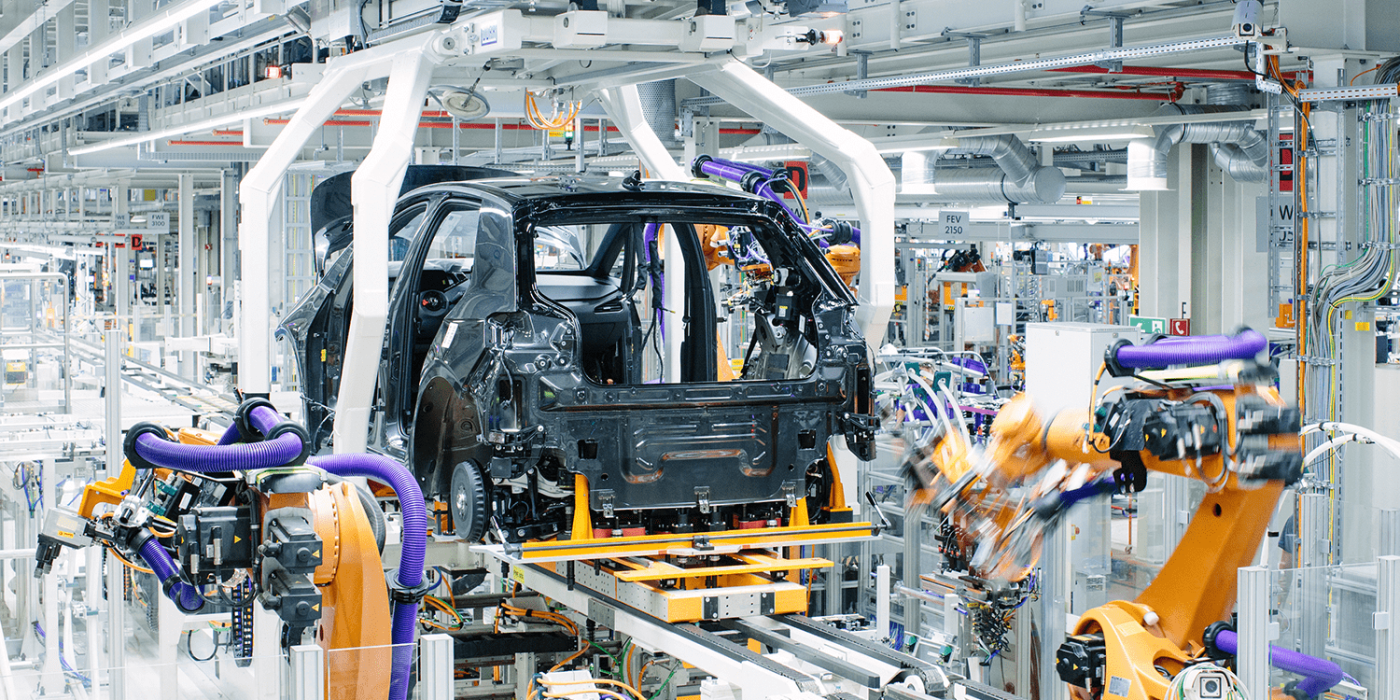VW brand CEO reveals that the electric Golf will arrive 2028 at earliest
Volkswagen has provided insights into its model planning for the upcoming EVs. According to brand CEO Thomas Schäfer, many points are still open – as the production of new electric cars will also depend on the demand for combustion engines. And this will also be decided in Brussels.
In the interview with the German publication Automobilwoche, Schäfer confirmed the basic goal that the VW brand wants to sell only battery-electric vehicles in Europe. In the interview, the CEO of the VW brand made it clear that a new electric Golf will only be available on the basis of the upcoming SSP electric platform. And as things stand at present, this is planned for 2028. So there will be no ID. Golf before then.
Schäfer justified the fact that the electric Golf needs the SSP with the “Golf genes” that are to be found in the vehicle. For example, the model is to have “a flatter roof compared to the ID.3”, which is not possible based on the MEB or the further development MEB+. “Simply calling any vehicle that is not possible,” says Schäfer. “We won’t make that mistake.”
On the other hand, an electric SUV the size of a Tiguan (so far partly called ID. Tiguan) offered in addition to the ID.4 could debut as early as 2026: “With a tall model like the Tiguan, that’s already possible. We can do that very well with the MEB+ platform. We are much more flexible. Whether it makes sense to do it now or later, we’ll have to see,” Schäfer is quoted as saying.
Decision on Trinity production still 2023
Like their current combustion engine counterparts, the ID. Golf and ID. Tiguan could be built in Wolfsburg. The delayed flagship model Trinity (also based on SSP, so not before 2028) will also come off the production line there. The new VW leadership around Group CEO Oliver Blume and Schäfer has stopped the new building in Wolfsburg-Warmenau, which was originally planned under the then Group CEO Herbert Diess, for the time being.
In the interview, Schäfer now gives some background on the exact location of the Trinity production: “That depends on how much space there is at the main plant. If the construction of internal combustion vehicles has been scaled down as far as we expect by then, then we will probably have enough space there and can integrate the vehicle into the plant. If not, we will have to build anew,” said the brand boss. “In 2026, that certainly wouldn’t have worked. In 2028 it could work according to the current forecast.” A decision is expected to be made this year.
Future internal combustion demand (and thus indirectly Trinity production) will also depend on the new Euro-7 regulations – the details of the emissions standard are still being discussed in Brussels. According to Schäfer, if Euro-7 comes with the specifications that were mentioned last year in November, it will be “extremely difficult, especially for smaller vehicles”. “You will then definitely need hybridisation, an all-round camera belt, probably tungsten carbide brakes. And you can’t do anything without an automatic,” the manager said. “For larger vehicles, that’s not quite so bad. But a cheap manual for under 20,000 euros, like in the Polo, won’t be available then.”
VW is not planning a Golf 9
An internal combustion Polo would thus become “almost as expensive as the production version of the ID. 2“. Schäfer does not want to confirm the end of the Polo, but he hints that a Euro 7-compliant small car would have a much harder time on the market – the same might apply to the cheaper versions of the Golf.
Against this background, VW is not currently planning a Golf 9. The current Golf 8 is to undergo a major product upgrade, i.e. a comprehensive facelift, next year. “This will put it in a good position until the end of the decade. Then we have to see how the segment develops,” says Schäfer. “If the world develops completely differently than expected by 2026 or 2027, then we can also launch another completely new vehicle. But I don’t think so. So far, that’s not planned.”
Even before the Golf 8 facelift, the new Passat and Tiguan will be unveiled this year, with the Tayron and the successor to the T-Roc due to arrive later in 2025. The T-Roc will then be the last new VW combustion engine vehicle “as things stand today”. “For the time being, the T-Roc is the last new combustion car in Europe that we see on the horizon,” says the VW brand boss. “The others will of course get even bigger product upgrades. But completely new vehicles are not in the plan after that, at least not so far.”
However, it will probably be some time before another small electric car below the ID.2all, which Schäfer had recently promised. He mentions “promising approaches”, such as a cooperation with another manufacturer, a slimmed-down existing model or a completely new development. However; “As of today, such an electric car is not yet feasible in terms of price at the current battery and raw material costs. It would be nice if we could achieve this in this decade. The sooner, the better. But we’re not there yet.”
The current e-Up will be phased out in mid-2024, however, as that is when the new UNECE rules on cybersecurity come into force. “Otherwise we would have to integrate a completely new electronics architecture. That would simply be too expensive. It’s better to develop a new car right away,” says Schäfer.
With reporting by Sebastian Schaal, Germany.
automobilwoche.de (in German)





0 Comments